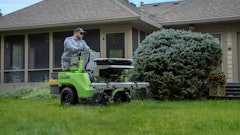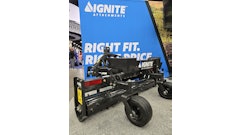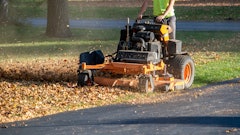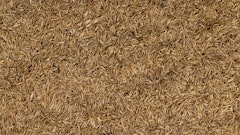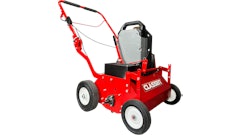Trees, shrubs and turfgrass often take a winter-long beating in the northern states. Even locales outside of the snowbelt are faced with challenging conditions, such as the occasional unexpected freeze, snow and/or ice storms, and wildly fluctuating temperatures. All of these scenarios result in excessive plant transpiration (water loss).
There are things you can do for your customers to help them protect their plants throughout winter—and you can be doing those things over the next couple of months before Old Man Winter rears his ugly head.
Products that Help Plants Retain Water. Lightly coating leaves with an anti-transpirant such as PBI/Gordon TransFilm helps relieve water stress by creating a water-impermeable layer, thus reducing water loss. A single late-fall application can provide winter-long protection.
Landscape contractors and lawn care operators have applied TransFilm to deciduous trees, conifers, container stock and bedding plants. The product can also be used to prevent Christmas trees from drying out so fast, creating another opportunity for the many contractors who offer holiday decorating services in the off-season. Finally, TransFilm helps extend the life of cut sod, and extends the irrigation interval of indoor plants.
Water. Even though it’s no longer summertime, plants still need water. Watering plants before a freeze can help protect them. Then, after the freeze, assess additional plant water needs. If the sun comes back out but the water and soil around the plant is frozen, transpiration will accelerate. Apply water to thaw the soil and get water to the plant’s roots. It’s also important to continue watering plants during cold, dry periods.
Cover. Building some kind of protective structure for plants is sometimes a good idea, especially for plants that are in a precarious position, making them susceptible to falling snow or ice. Just be sure that the covering extends all the way to the ground, and does not come into contact with the plant. Cloth sheets or plastic can be effective, but with plastc you have to provide ventilation or remove on sunny days, as too much heat will build up beneath the cover. Better yet, build a frame over the plant and attach your cover to the frame.
Additional layers of mulch also help plants reduce water loss.














